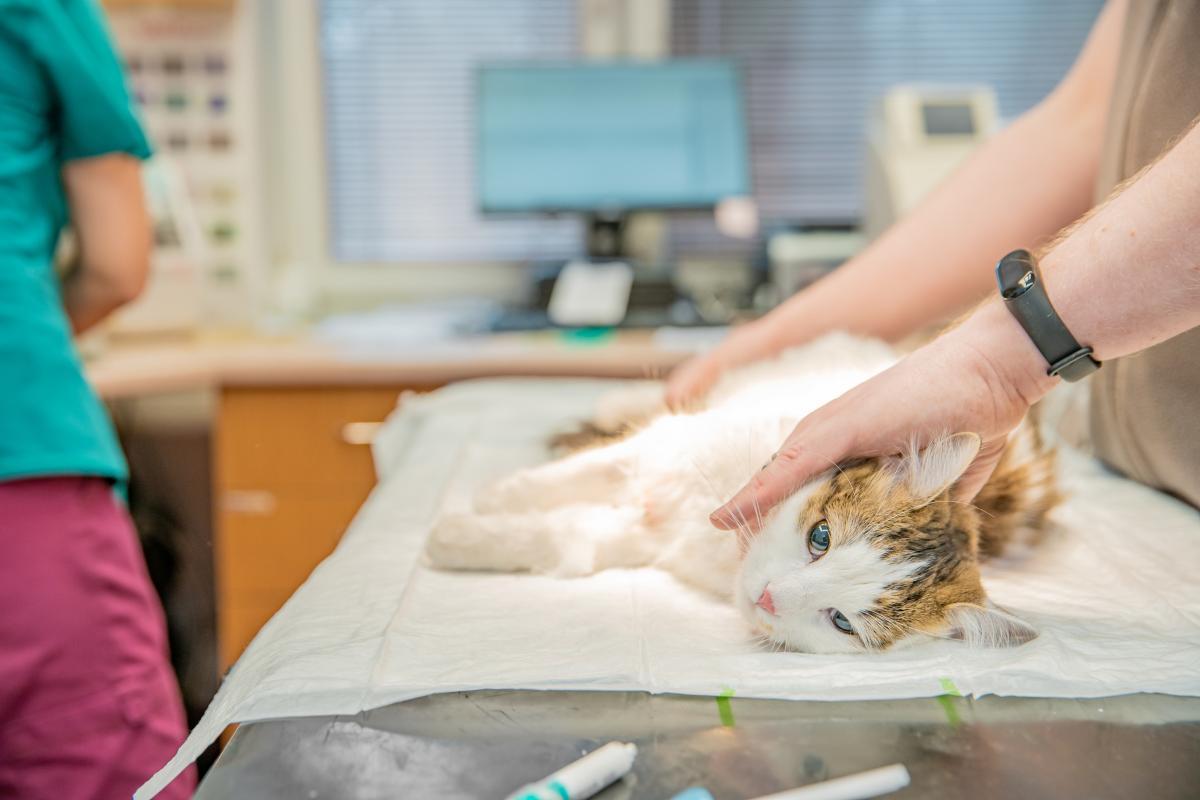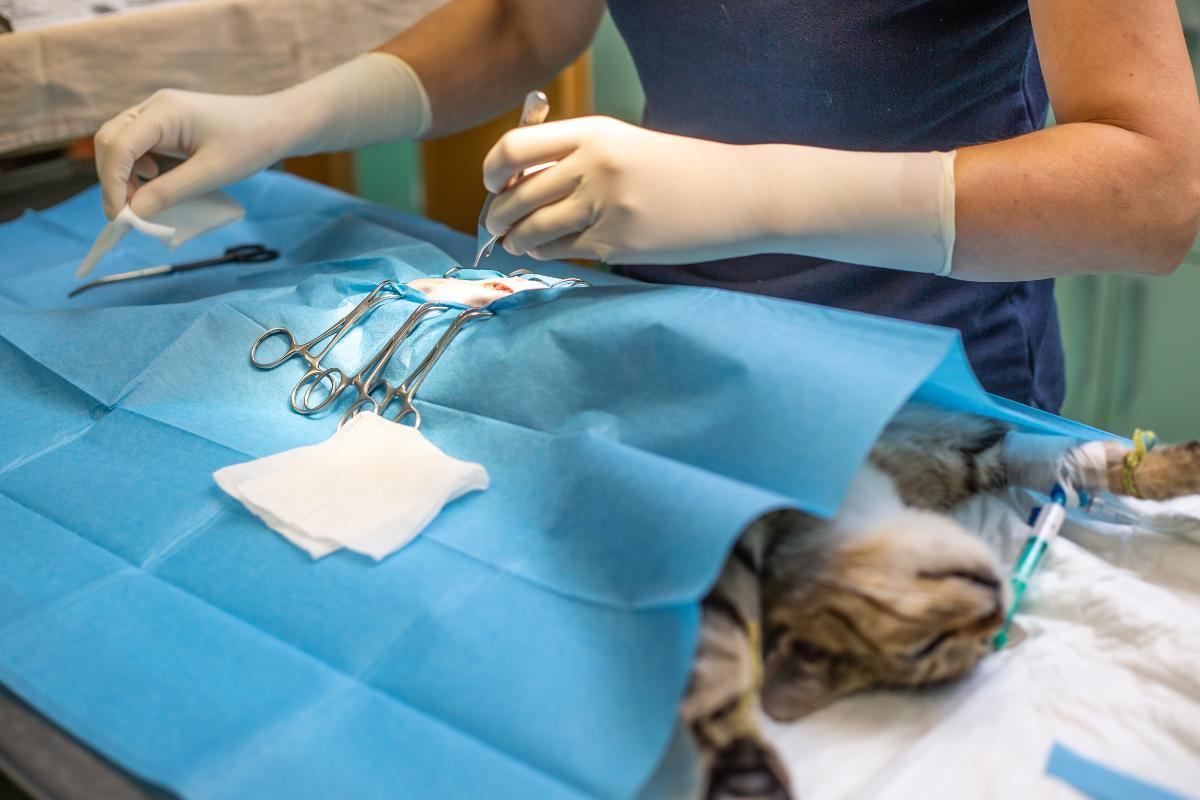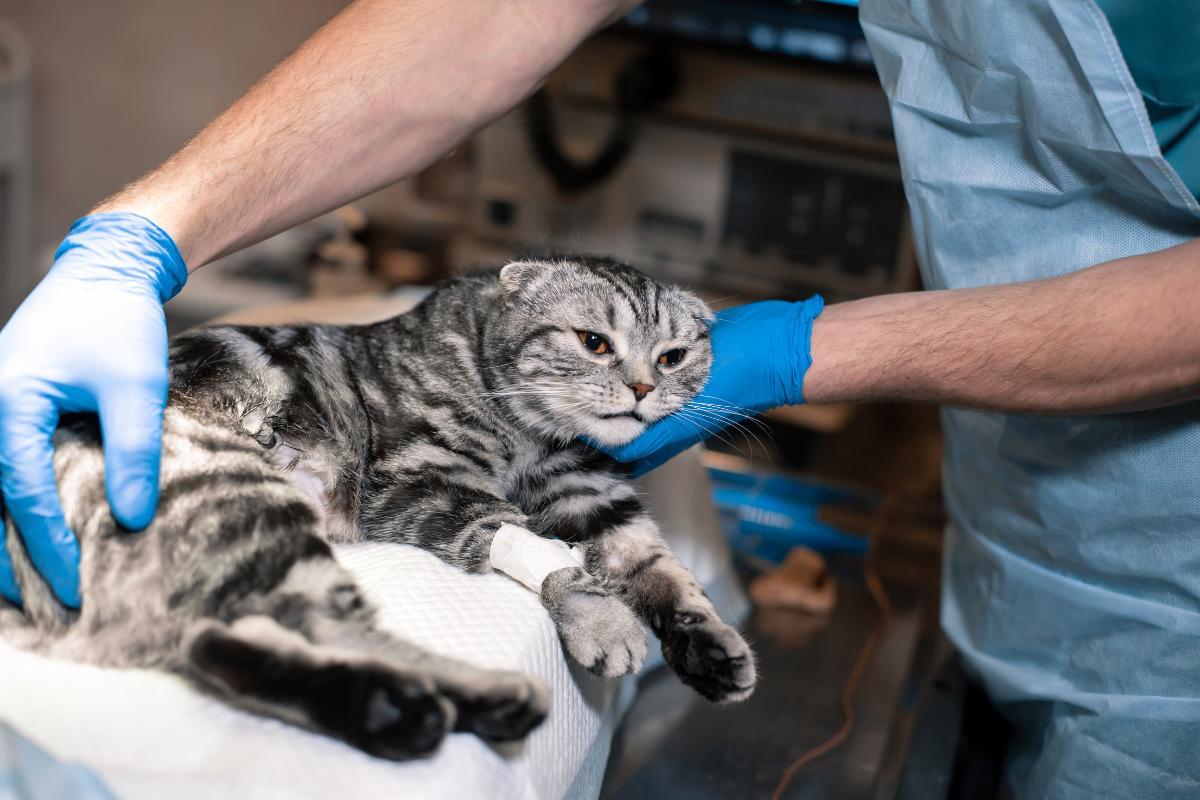Is Cat Anesthesia Safe?

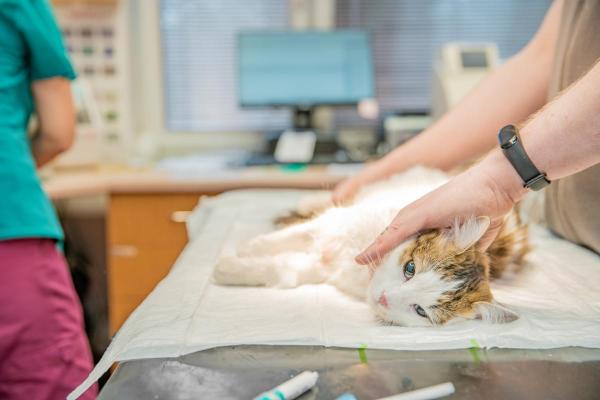

See files for Cats
Anesthesia for cats is a necessary medical procedure which protects the animal from harm. Local anesthesia can prevent the cat from experiencing pain and other negative sensations by numbing nerve sensations in a localized area. General anesthesia helps avoid these problems by immobilizing the feline completely. The latter is very useful as a cat's reactions to many procedures can make them impossible to perform. For this reason, general anesthetic is more common. While it is used for the safety and protection of the cat, it is a process which is not without its own risk. The level of risk will depend on various factors, not least the health status of the cat.
At AnimalWised, we learn more about these possible risks by asking is cat anesthesia safe? We investigate the process in detail, assess the overall risk and find out if there are any long-term side effects of anesthesia in cats.
Can a cat die from anesthesia?
It is possible cat can die from anesthesia. As with any medical procedure, there is a calculated risk involved in carrying them out. It is very important to know that this risk will be assessed by the veterinarian in charge. If the risk is high, it will only be carried out if the alternative is the death of the animal. Fortunately, the death rate for cats due to anesthesia is a fraction of a percentage[1].
The level of risk for a cat undergoing anesthesia will depend on a series of factors which make the animal more or less susceptible to complications. These can be grouped into two overarching categories:
- Factors relating to the individual cat: when assessing a cat for anesthesia, the veterinarian will need to consider factors such as age, weight and overall health status. This will require looking at their medical history, especially if they have pre-existing conditions which can result in complications. For example, heart or liver problems can greatly increase the risk of side effects from the anesthesia. The veterinarian will perform various tests to determine their suitability and decide on anesthesia based on the available information.
- Factors relating to the procedure: the safety of anesthesia is not purely based on the reaction of the cat's organism. The skill and experience of the veterinary surgeon are particularly important. They will decide on drug type and dosage, as well monitor them throughout the procedure. Well-trained individuals will do all they can to minimize the risk. They should also relate to you the risks involved and explaining the prognosis before the operation. This process can be complicated if they need to perform emergency intervention where time is a factor.
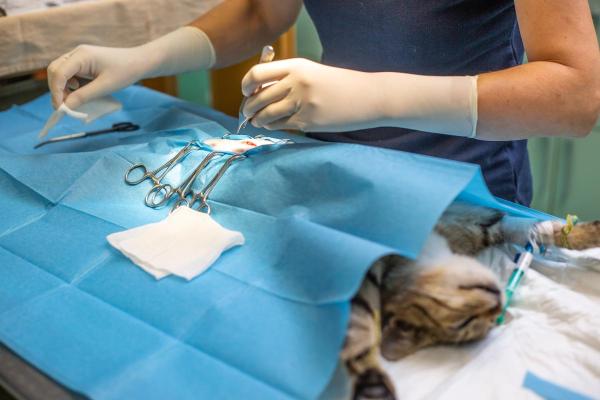
Anesthesia complications in cats
The main risks involved with anesthesia in cats are respiratory and cardiovascular. This is because general anesthesia depresses the animal's respiratory and cardiac systems, resulting in a loss of reflexes. It is this loss of reflex which makes the procedure easier, but can also provide a greater chance of complications.
For this reason, it is essential to monitor the feline's vital signs before, during and after surgery.
- Respiratory complications: to control the correct ventilation of the animal and ensure respiration continues while they are unconscious, an endotracheal tube is usually placed. In the case of cats, intubation must be done very carefully since these animals have a highly developed laryngeal reflex. Their airways are small and very sensitive. The cat's guardian must ensure the animal has fasted during the hours prior to surgery, since many anesthetic drugs induce vomiting. This can be very dangerous, especially if the feline is intubated.
- Cardiac complications: they are somewhat less common in cats and include the appearance of arrhythmias (tachycardia or bradycardia), as well as hypo or hypertension.
Another potential complication of anesthesia in cats is hypothermia. This is one of the most frequent in felines. Many anesthetics affect the animal's thermoregulation capacity. When we factor in the administration of fluids and contact with cold surfaces such as the operating room table, the cat can lose heat relatively easily. To avoid these problems, veterinarians usually use thermal blankets or warm serums.
Learn more about hypothermia in cats with our article on why a cat's temperature is low.
Long-term side effects of anesthesia in cats
Even after successful surgery, the cat will not be completely out of danger. The postoperative period in cats can present its own risks. Anesthetic recovery is defined as the time that elapses from the moment anesthesia is no longer administered to the animal.
This period is critical, especially during the first two or three hours. During this time, it is important the cat remains under veterinary supervision, especially they have undergone a complicated, long or very traumatic operation.
Once the animal begins to regain consciousness, it is very common for them to be disoriented and dizzy as a result of the anesthetic effects. In the hours following surgery, the cat may show signs of tiredness and apathy. They may appear somewhat restless or overwhelmed, especially when they try to walk and cannot do so with ease. If the cat has been intubated during the operation, it is possible they will have a slight dry cough or feel discomfort in their throat for a few days.
Fortunately, once the animal has completely woken up and is out of danger, they usually recover very quickly from the anesthesia and return to a normal within a few hours. As you can see, a cat can die from anesthesia due to the potential risks. We rely on the veterinarian to weigh these risks and make the correct decision based on the information they have available. Even with all the precautions being taken, unknown factors can result in complications.
Generally speaking, once the postoperative period is complete and the cat has returned to normal, long-term side effects of anesthesia are very rare. In these cases, the cat may experience:
- Neurological problems: these can be a result of improper intubation or other factors during the procedure. If the brain does not receive enough oxygen, it can result in damage that may manifest in cognitive dysfunction or more serious neurological issues.
- Organ failure: the toxicity of the anesthetic drugs can affect various organs, especially the liver and kidneys. If the cat has pre-existing kidney disease, these risks are more prevalent.
- Respiratory problems: again, this may be a result of the intubation. Respiration is depressed and it can exacerbate pre-existing conditions.
As stated above, these complications are rare. If the risk is high, the veterinarian may decide not to go ahead with the procedure. Learn more about the risk assessment for surgical intervention in cats with our article on how long anesthesia for cats lasts.

My cat died from anesthesia
Death of a cat from anesthesia complications is possible. Even after all the precautions have been taken, there is always a risk. These can occur during or after its administration. For this reason, it is important to speak to the veterinary surgeon and anesthesiologist who carried out the procedure. They will be able to relay how the procedure went and inform us if there were any particular complications. They can also determine if there were any issues during the postoperative period.
After receiving the veterinarian's testimony, you can choose to request a second opinion or have your animal undergo a necropsy. This may be necessary if you are not satisfied with the explanation of the facts or if you suspect that a medical error may have been made. In this case, a pathologist will examine the cat and write a report that will be sent to you, specifying their findings and the most probable causes of the animal's death.
Prosecutions for veterinary negligence are not common. If clear evidence of wrongdoing has been determined, you should speak to a lawyer about possible recourse. This can be important in ensuring negligent practices are not carried out in the future.

This article is purely informative. AnimalWised does not have the authority to prescribe any veterinary treatment or create a diagnosis. We invite you to take your pet to the veterinarian if they are suffering from any condition or pain.
If you want to read similar articles to Is Cat Anesthesia Safe?, we recommend you visit our Medicine category.
1. Brodbelt D. (2010). Feline anesthetic deaths in veterinary practice. Topics in companion animal medicine, 25(4), 189–194.
https://doi.org/10.1053/j.tcam.2010.09.007





